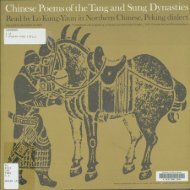You also want an ePaper? Increase the reach of your titles
YUMPU automatically turns print PDFs into web optimized ePapers that Google loves.
the epics of the Russians, Turks> Arabs, we<br />
shall be in a better position to tell how common<br />
to all heroic poetry these themes are. Already<br />
we observe some remarkably tangent<br />
themes between ancient and modern Greek<br />
poetry. The recognition theme of the<br />
Odyssey is a favorite in the Akritan cycle<br />
and in folksongs. The popular theme of the<br />
wrestling between Digenes and Charos,<br />
Death, is similar to Herakles I wrestling<br />
with Death in the Alcestis of Euripides. The<br />
duel and the ensuing recognition scene between<br />
father and son in the Akritan poems is<br />
the same as that between Odysseus and<br />
Telegonus, Sohrab and Rustum. The wielding<br />
of exceptional weapons, the Hermes<br />
theme about the prodigious feats of an infant;<br />
the speaking horses> the Amazon theme,<br />
the Orpheus theme, all appear in modern<br />
Greek poetry. Just how they got there is a<br />
moot question. Some claim that Byzantium<br />
inherited these themes from the classical<br />
world and passed them on to the folksong.<br />
In part i:his is true but it is more probable<br />
that many of these themes never died out<br />
in oral poetry and re-emerge in Greek folklore.<br />
The longevity of survival of thes e traditional<br />
themes gives us grounds for belief that<br />
many of the themes of the Homeric epic were<br />
inherited from the Mycenaean epic tradition.<br />
We best see the technique of ornamentation in<br />
comparing the Cretan epic, The Song of<br />
Daskaloyiannes, with other Cretan poems in<br />
our collections. It is the masterpiece of<br />
Cretan heroic poetry by virtue of its rich technique<br />
of ornamentation. The absence of heroic<br />
poems longer than a thousand lines, the length<br />
of Daskaloyiannes, prevents us from observing<br />
more accurately the role of ornamentation in<br />
contemporary Greek heroic poetry. The excellence<br />
among the variants of versions of a<br />
few hundred lines lies not in the length but in<br />
the ability of the singer to fit his formulae<br />
closer to the cinematic and dramatic actions of<br />
the epic life.<br />
Such is the value of modern Greek Heroic<br />
Poetry in the study of comparative oral<br />
literature. In the case of Homer it substantiates<br />
through correspondence the<br />
essential features of his oral technique and<br />
gives us a standard of reference for evaluating<br />
the Homeric excellence. The oral poets<br />
of Greece and those of Yugoslavia recorded by<br />
Parry and Lord, 3 though a far cry from the<br />
genius of Homer, offer us badly needed facts<br />
in our recent awareness of Homer as an oral<br />
poet. These singers of tales will loom larger<br />
in Homeric studies if for no other reason than<br />
7<br />
the fact that, genius apart, the singing of tales<br />
rests on the same elements of oral composition,<br />
ancient or modern.<br />
THE AKRITAN ORAL CYCLE<br />
The heroic way of life reflected in the epic is<br />
forged in the crucible of wars. The Achaean<br />
warriors performed their feats in numerous<br />
raids, feuds, adventures overseas of which<br />
we have mention in the sagas of the Homeric<br />
and the Cyclic epics. From these sagas<br />
Homer ultimately created his epics, coming<br />
as he does at the end of a long epic tradition<br />
in the eighth century. We find the same<br />
factors at work in the creation of the Akritan<br />
cycle. This cycle was the result of wars in<br />
the frontier provinces of the Byzantine Empire,<br />
in the provinces of Pontus and Cappadocia.<br />
In these provinces were stationed troops known<br />
as "akrites," frontiersmen, who defended the<br />
empire against raids from the Saracens. We<br />
have an interesting ikonography of these warriors<br />
not only in manuscript illuminations but<br />
also on Byzantine pottery from Corinth, dated<br />
in the eleventh and twelfth centuries. They<br />
wear the "fustanella, " the kilt, even as the<br />
later klephts. The feats of these "akrites" became<br />
the themes of heroic poems. Bishop<br />
Arethas of Caesarea (860-932) refers to oral<br />
bards singing songs about the fates of these<br />
frontiersmen. Thus these bards, the counterpart<br />
of those who sang in Mycenaean courts,<br />
composed songs in honor of frontier generals<br />
like Melissos, Doukas, Andronikos, Porphyres,<br />
Constantine, at whose courts these songs were<br />
probably sung. The Akritan cycle, inbued with<br />
real epic spirit and a semblance of certain<br />
qualities of Homer, is the origin of modern<br />
Greek heroic poetry. These ballads outgrew<br />
historical verisimilitude at an indeterminate<br />
period and emerged as epic ba.llads filled with<br />
the marvels of myth-making.<br />
The central hero of this cycle is Digenes<br />
Akritas who, as his name signifies, was the<br />
son of an Arab emir who abducted the<br />
daughter of a Byzantine prince and after reconciliation<br />
marries her and becomes a Christian.<br />
The cycle does not deal with the entire history<br />
of the hero as is the case with the long literary<br />
versions of Digenes Akritas, which were<br />
written later on the basis of the oral ballads.<br />
The cycle deals with discrete episodes such<br />
as the childhood feats of the hero; his loves,<br />
the abduction of his wife, his adventures with<br />
the Saracens. In this cycle Digenes emerges<br />
with the youthful bravery of Achilles, the<br />
prodigious strength of Herakles, and the




